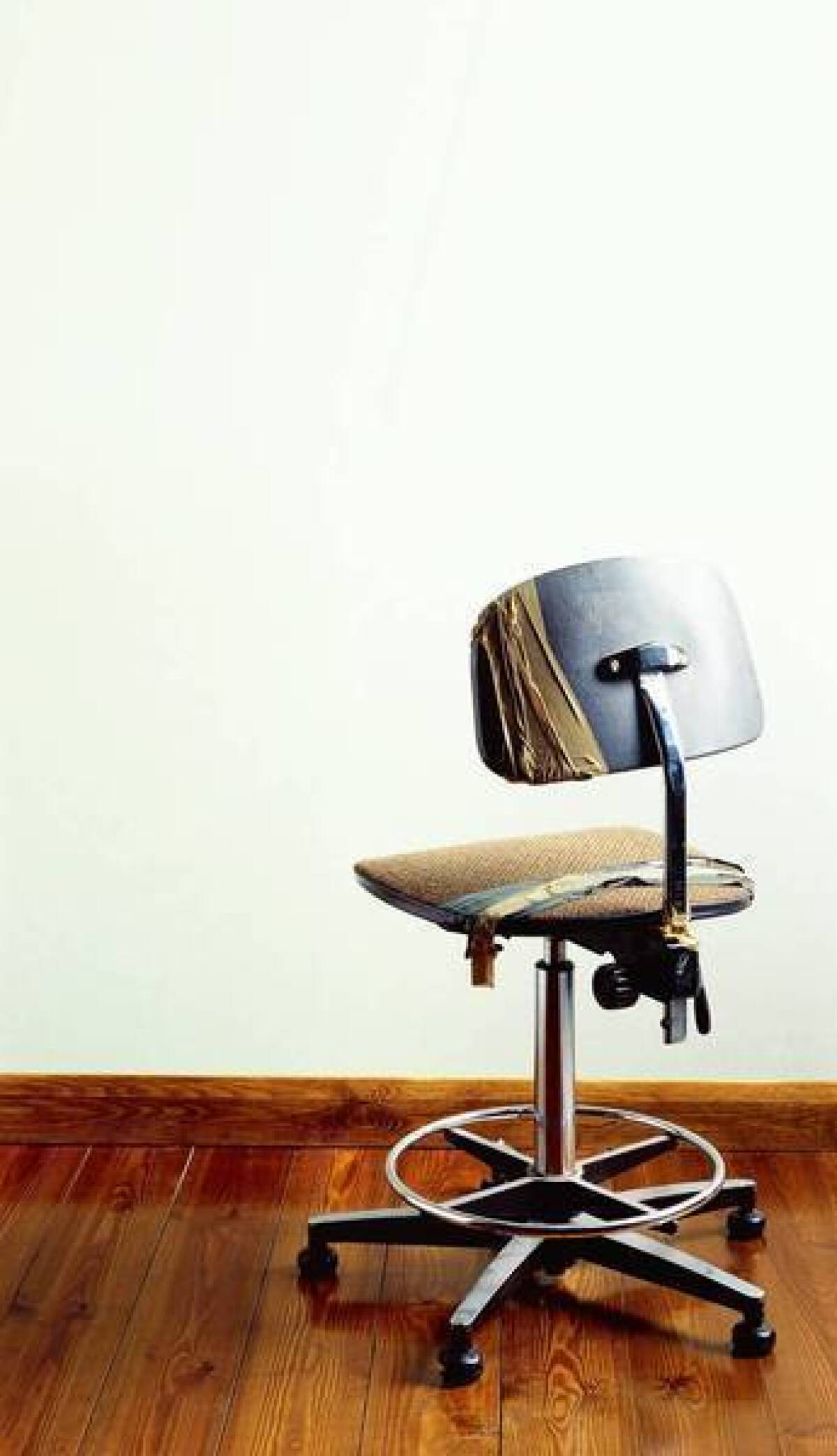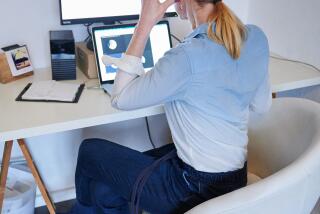Don’t just sit there. Really.

- Share via
“Prolonged sitting is not what nature intended for us,” says Dr. Camelia Davtyan, clinical professor of medicine and director of women’s health at the UCLA Comprehensive Health Program.
“The chair is out to kill us,” says James Levine, an endocrinologist at the Mayo Graduate School of Medicine.
Most of us have years of sitting experience, consider ourselves quite good at it and would swear that nature intended us to do it as much as possible.
PHOTOS: 17 ways to fight the inertia, step by step
But unfortunately, a good deal of data suggest that we’re off our rockers to spend so much time on our rockers — as well as the vast variety of other seats where we’re fond of parking our duffs. Here’s a sampling of what scientists have learned about the insidious nature of sitting.
Repurposing gone awry
The human body was designed for walking, and people did a whole lot of that for millenniums. But lately, not so much. In general, scientists believe, Americans now sit for more than half of their waking hours. Sadly, the sitting position exerts forces on the body that it’s not built to accommodate, Davtyan says, and so, as comfy as it may seem, couch potato-hood can lead to a host of woes, including poor circulation and assorted aches and pains.
Obe-sit-y epidemic?
We’re not using much energy when we’re sitting still, which is no doubt part of its appeal. But, of course, “not using much energy” is just another way of saying “not burning many calories,” which is just another way of saying “watch out for extra pounds.” “There is debate as to whether it is the chair or the knife and fork that have caused the increase in obesity rates,” Levine writes in a 2012 article. A person with a desk job may burn 300 calories a day at work, he reports, but that same person might burn 2,300 calories a day in a job that requires considerable physical effort.
Assessing the damage
Sitting at your desk for hours on end, slaving away diligently, can increase your chances of getting a promotion — but also diabetes, heart disease or even an early grave. A study published in the journal Diabetologia in November 2012 analyzed the results of 18 studies with a total of nearly 800,000 participants. When comparing people who spent the most time sitting with those who spent the least time, researchers found increases in the risks of diabetes (112%), cardiovascular events (147%), death from cardiovascular causes (90%) and death from all causes (49%).
“Sitting is the new smoking,” says Anup Kanodia, a physician and researcher at the Center for Personalized Health Care at Ohio State University’s Wexner Medical Center. As evidence, he cites an Australian study published in October 2012 in the British Journal of Sports Medicine that compared the two pastimes. Every hour of TV that people watch, presumably while sitting, cuts about 22 minutes from their life span, the study’s authors calculated. By contrast, it’s estimated that smokers shorten their lives by about 11 minutes per cigarette.
How can this happen? Not only is sitting lousy at calorie burning, but it has been shown to suppress the production of an enzyme called lipoprotein lipase, which is essential for turning bad cholesterol into good. Sitting can also lead to insulin resistance and, therefore, trouble metabolizing sugar. All these strikes against it help to explain, at least in part, its association with heart disease and diabetes.
PHOTOS: Standing desks: Designs to stay on your feet
Is exercise the solution? Suppose you do 100 sit-ups every morning. Can you safely sit back and rest on your laurels the rest of the day? Research says no. Despite the good it does for you in many ways, exercise is not a vaccine against the ills of sitting. Once you burn a bunch of calories, they’re gone, of course. But it doesn’t take long for some of the other beneficial effects of exercise to wear off and the detrimental effects of sitting to set in. For instance, lipase production can go down by 90% within hours, a 2008 study in the journal Diabetes found.
Is there any hope? There are ways of outwitting our penchant for sitting. Levine has a treadmill at his desk that he strolls on all day long. He made his own, but many models are commercially available. Indeed, whole lines of furniture have been developed to facilitate what David Kahl calls “active sitting.”
It can take a while for people to adjust to this new way of sitting, says Kahl, who owns the Ergo Depot in Portland, Ore. “But in the end I haven’t had anybody say, ‘I can’t do it.’”
There are simpler steps to take too — e.g., merely increasing the number of steps you take during the day. But can such small things really make a difference? A study published last year in Diabetes Care showed you can improve your glucose metabolism with a two-minute walk every 20 minutes.
Considerable anecdotal evidence points in the same direction. True, many — perhaps including you yourself — have done some of their best work while sitting at their desks. “That’s where I shine,” the late writer Robert Benchley once said. But many others have achieved remarkable success while standing up on the job, including Winston Churchill, Charles Dickens, Benjamin Franklin, Ernest Hemingway and Mark Twain.
And then there was Einstein, Levine notes: “He was riding a bike when he came up with e = mc².”






